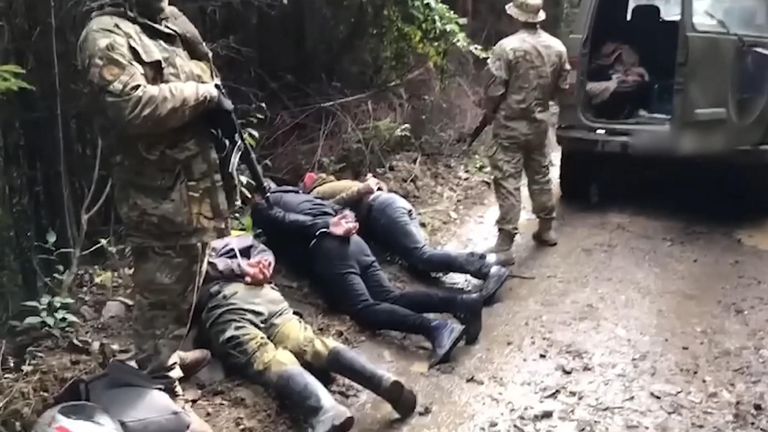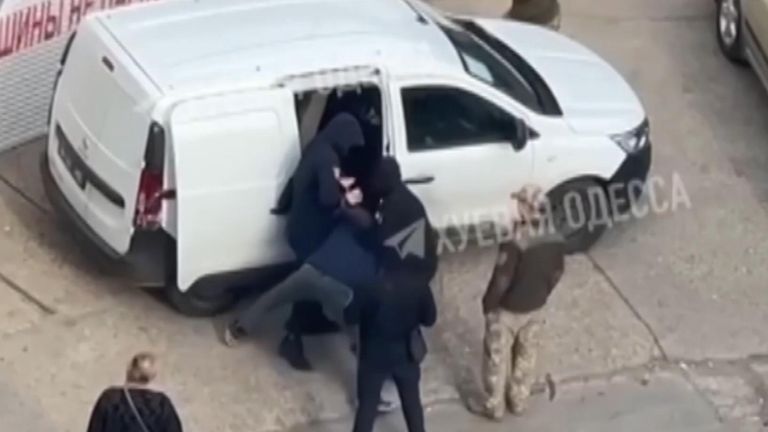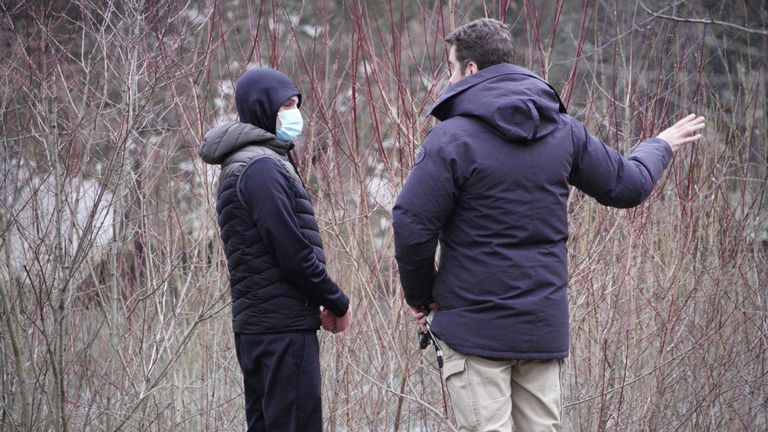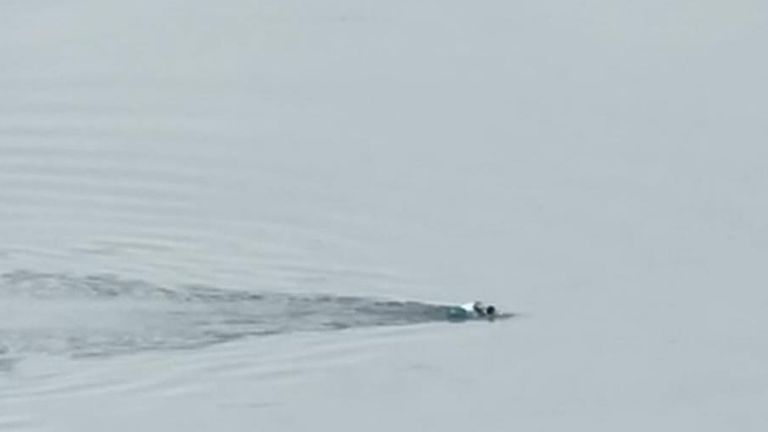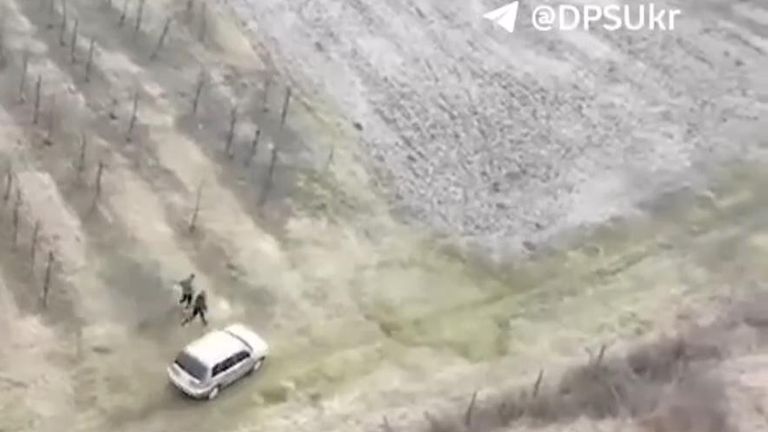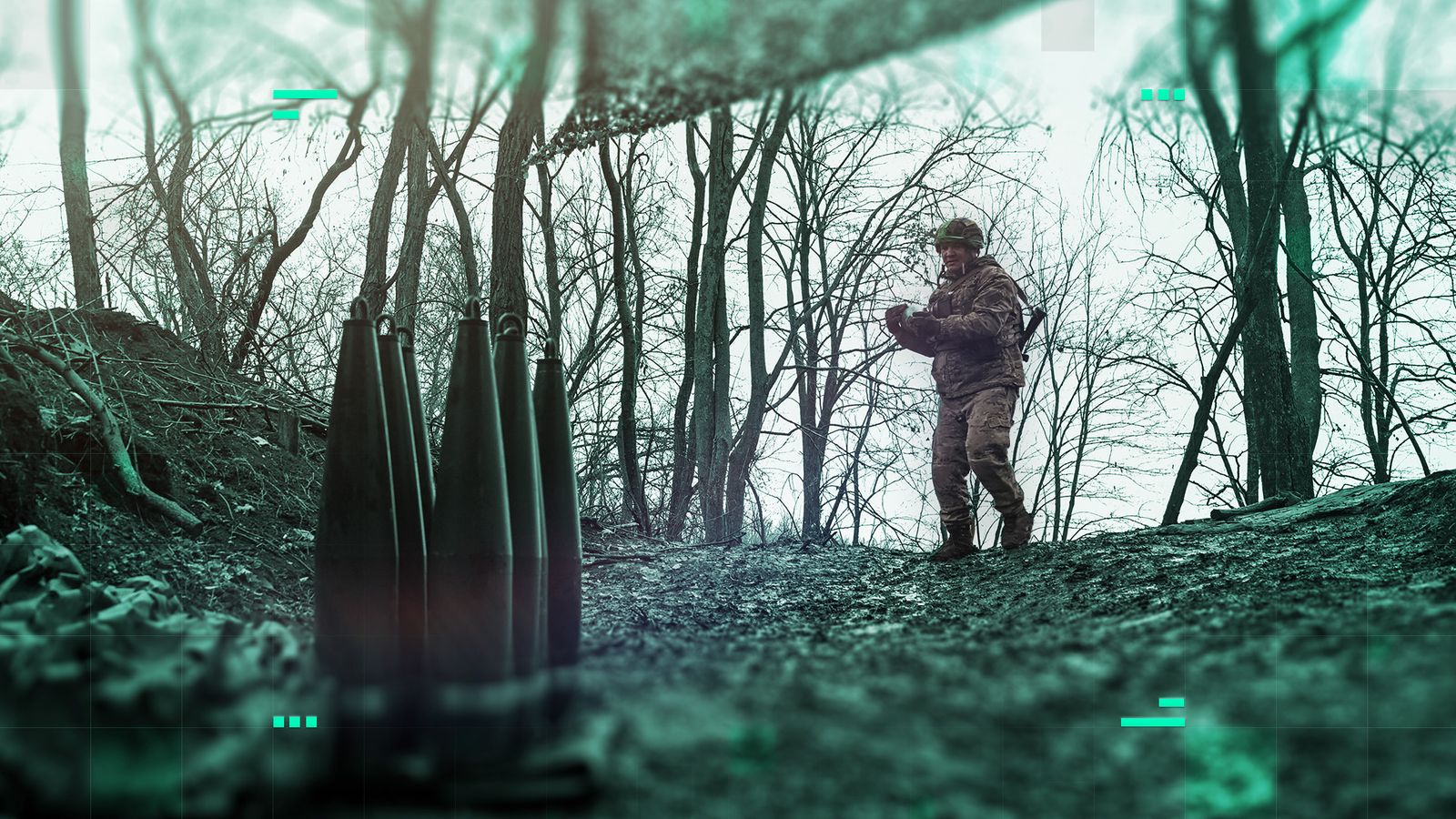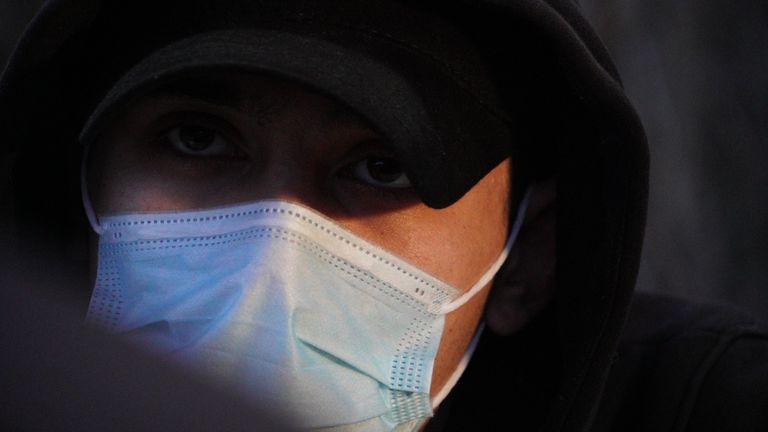
Low demand is not a problem the smuggler says he has to worry about.
This individual, who takes young men across the Ukraine’s western border into Europe, says he is only able to assist a tiny fraction of those who make enquiries.
Motivation is not an issue for ‘Stas’ either – the smuggler claims his purpose is all about saving young people’s lives.
Russia-Ukraine war latest: Zelenskyy responds to Trump’s ‘peace plan’
“They simply aren’t ready to die, young people aren’t ready to bury themselves alive,” he says.
“So they turn to us for help. A significant number of people are turning to us, I won’t mention names.”
Stas emerged from trees in a rural part of western Ukraine wearing a hoodie and a medical facemask.
Speaking with an unmistakable intensity, it was clear that he felt no shame.
He organises “crossings” for men trying to avoid conscription into the Ukrainian armed forces.
By sneaking them into one of five neighbouring European countries, his clients can apply for temporary residency – safe in the knowledge they will not be sent back.
In Ukraine, the journey constitutes a serious breach of martial law, introduced after Russia began its invasion.
All men between 18 and 60 are prohibited from leaving the country.
The smuggler is also helping young men flout the rules of conscription as the military tries to find new recruits after two years of intense fighting.
Those dodging the draft mainly cross at the Moldovan and Romanian borders, but also other neighbouring countries including Hungary, Slovakia and Poland.
From there, they move on as they please.
They either apply for asylum when they arrive or move on to another country. In either case, they are not handed back to the Ukrainian authorities.
President Zelenskyy recently signed legislation that lowered the enlistment age from 27 to 25.
In addition, Ukraine’s parliament is expected to pass a comprehensive mobilisation bill that will speed up the enlistment process and eliminate various exemptions for those trying to avoid the draft.
The smuggler dismisses these efforts to enlarge the Ukrainian army with a decidedly distrustful take. Zelenskyy and his generals, he argues, are robbing a whole generation of its future.
“I don’t want to see young people dying. I just don’t want to see that. I understand I may not be a saint (but) people want to cross and start living their lives. I can’t refuse them.”
Stas says he selects prospective clients based on their determination to leave. No one has changed their mind after initiating the journey, he claims.
“When you explain to them that there are some risks, they don’t want to hear about it,” says Stas.
“They just want to build a life for themselves… you explain, well, it’s going to be cold. But they don’t care.”
‘No drownings, just hypothermia’
The cost of the journey has soared as the authorities beef up security on their western frontier.
Crossing by foot costs $6,000 (£4,780) but escapees get a $2,000 (£1,595) discount if they are willing to swim across one of several rivers that separates Ukraine from other countries.
“If the person says they can’t swim, we have equipment for that, but there’s an additional payment involved,” Stas explains.
“As for any of our clients drowning, well, that hasn’t happened yet. There have been cases of hypothermia though, especially in winter.”
New checkpoints and frequent border patrols have made his operation more difficult, but the introduction of drones has resulted in a massive headache, he says.
“(Drones) are the biggest thing that complicates our work now.
“Dogs, well, you can mask your scent. Certain manipulations are done for that, to eliminate the scent. But what’s impossible, what’s the biggest issue now, are drones, and there are so many of them.”
Read more:
Is the Russian fleet abandoning Crimea?
Drone hits Russian-held Zaporizhzhia nuclear plant
He uses tarpaulin sheets to provide cover and says he depends on information from his contacts to avoid detection. However, he refused to talk about their identity.
The smuggler did reveal a significant proportion of the money forked over by the draft dodgers ends up in the hands of these unnamed contacts.
Clearly, he is playing a dangerous game in the mountains and valleys of western Ukraine. If caught, Stas faces a jail term of up to nine years.
“Why are you doing this?” I asked. “Is this about business – or are you trying to help these young men?”
The smuggler did not like the suggestion that he was acting for own financial gain.
“I don’t want to answer that,” he replied after a lengthy pause.
But he came back to the question a few minutes later.
“A person who understands that (these men) can be taken to war doesn’t ask such foolish questions.”
With the interview completed, Stas disappeared into the gloom of the forest.
He has convinced himself, it seems, that he is acting in the best interests of those who pay him for his services.
Many will argue, however, that he is simply profiting from the country’s precarious position.


